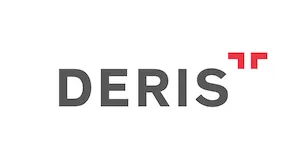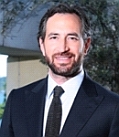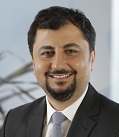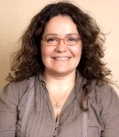Concerning the point whether claims to biological products such as antibodies, vaccines and/or protein based drug products are patentable in Turkey; limits and/or exceptions to what is patentable
According to Article 6 of the Decree Law no.551 Pertaining to the Protection of Patent Rights the following shall not be in nature of patentable inventions:
- Discoveries, scientific theories, mathematical methods;
- Plans, methods, schemes/rules for performing mental acts, for conducting business/trading activity, and for playing games.
- Literary and artistic works, scientific works, creations having an esthetic characteristic, computer programs.
- Methods involving no technical aspect, for collecting, arranging, offering/presenting and transmitting information/data.
- Methods of diagnosis, therapy and surgery applying to human or animal body.
Subparagraph (e), shall apply neither to the products and compositions (per se) used in connection with these methods nor to their process of manufacturing.
Patent shall not be granted for inventions in respect of following subject matter.
- Inventions whose subject matter is contrary to the public order or to morality as is generally accepted.
- Plant and animal varieties/species or processes for breeding/plant or animal varieties/species, based mainly on biological grounds.
Turkey is a contracting party to the European Patent Convention (EPC) and patent registrations of antibodies, vaccines and/or protein based drug products are generally being validated through the PCT or the designation of Turkey before the EPO. The patentability criterion of antibodies, vaccines and/or protein based drug products are not further questioned by the Turkish Patent Institute (TPI) once they are validated in Turkey.
It is to be said that the approach to the patentability of antibodies, vaccines and/or protein based drug products is similar to the approach of the EPO.
As for the filing procedures the related Decree Law and practice does not define any special or unique set of proceedings about the filing and/or prosecution of patent applications containing claims directed to antibodies, vaccines and/or protein based drug products in Turkey.
Concerning patentability matters for applications containing claims directed to biological products such as those described above in 1).
There are no hurdles to patent applications containing claims directed to antibodies, vaccines and/or protein based drug products.
With reference to Art.6 mentioned above the only criterion the Turkish Patent Institute seeks is that the claims directed to the invention do not contain any methods of diagnosis, therapy and surgery applying to human or animal body.
Concerning the queries whether any extension terms are possible in Turkey
The term of patents is 20 years and cannot be extended in Turkey. (no SPC procedure)
Concerning data or marketing exclusivity available for any biological products once these products receive regulatory approval in Turkey
- Regarding the legislation about data exclusivity in Turkey: There are two fundamental legislations:
-Decree Law No. 551 on the Protection of Patent Rights and Human Medicinal Products Licensing Regulation. Third paragraph of 83rd article of Decree-Law No. 551 on the Protection of Patent Rights currently in force (from June 27, 1995) is as follows:
"Where an application for patent has been filed for pharmaceutical or veterinary products/drugs and for chemicals destined to agriculture, the authorities issuing authorizations/licenses for the manufacture and sale of such products and requesting for this purpose information and test results, that were not disclosed to the public and the realization and accumulation of which requires considerable expenses and efforts, shall keep such information and test results secret/confidential. The authority asking for such information and test results shall take the necessary measures to prevent unjustified/unlegitimate use thereof."
-Human Medicinal Products Licensing Regulation published on 25705 numbered Official Newspaper on 19th January, 2005 (last amendment made on 22.04.2009). 9th article of this regulation is about abridged applications and it determines the duration of data exclusivity and the relationship between the patent and the data exclusivity duration. Accordingly, the originator shall enjoy a right of data exclusivity for 6 years upon the licensing date of the original medicine before the Turkish Drug and Medical Device Institution (TDMDI) of the Ministry of Health.
In order to clarify the relation between patent and data exclusivity; according to the text of the Regulation, having a patent right is not a condition for benefiting from data exclusivity. That is to say, nothing precludes of benefiting patent protection and data exclusivity at the same time. In this regard, we confirm that a granted basic patent in Turkey that will expire before the 6 year data exclusivity term would limit the term of data exclusivity and therefore, would enable filing an abridged application for a generic drug and issuance of a regulatory authorization for it.
However, in case the patent has a longer term than the data exclusivity, this would enable its enforcement for matters falling under data exclusivity protection as well precluding the issuance of a regulatory authorization for the generic product. In case there is patent protection together with data exclusivity it is clear that patent right would enable the patentee to act against all kind of infringing activities.
In case there is a simultaneous protection of patent and data exclusivity and in case said patent lapses for any reason before the end of the 6 year term of data exclusivity such as by completing its full term of 20 years or by abandonment because of non-payment of annuity or by nullification upon court decision, the data exclusivity protection lapses together with the patent protection.
- With regard to application procedure for data exclusivity:
Please note that the applicant is requested to declare the data exclusivity (if any) while filing a request of authorization with the Ministry of Health. There is no other specific application procedure to apply for benefiting from data exclusivity in Turkey. Additionally, the Turkish health authorities in practice are inclined to link data exclusivity with the patent protection in Turkey. Therefore, it is advisable to declare the patent protection (if any) while filing a request of authorization with the Ministry of Health.
In the meantime, no differentiation is made for the data exclusivity of pharmaceuticals for use in humans such as orphan drugs and pediatric drugs.
- With regard to practice of Turkish health authorities and court decisions related to data exclusivity in Turkey:
Unlike the practice of the European Health Authorities the Supreme Court has decided that the filing of abridged applications do not constitute Unfair Competition and/or infringement since the filing of an abridged license application cannot be deemed as an action constituting unfair competition and /or infringement but is an action of using the right to apply for a license despite the above mentioned Art. 83/3 of the Decree Law No.:551 and stipulating the obligation of the authorities for the prevention of unjustified/illegitimate use of the pre-clinical data and the above mentioned Art.9 of the Human Medicinal Products Licensing Regulation concerning abridged applications.
Thus, the Turkish health authorities do not prevent an abridged application from being filed by generic companies (using the toxicological, pharmacological and/or clinical references contained in the dossier of the original medicinal product) during data exclusivity period but does prevent granting regulatory authorization to place the generic of a reference medicinal product on the market.
Moreover, please note that the TDMDI does not control whether the active substance and/or the therapeutic indications of the generic medicinal products are patented or not. In general, generic companies prefer to institute an action for declaration of non-infringement actions either before or after putting their products on the market.
Concerning biosimilar pathway available for biosimilar versions of biological products
As indicated above, Art. 9 of the Human Medicinal Products Licensing Regulation (Licensing Regulation) stipulates abridged license applications.
To demonstrate the “quality” of the biosimilar product, the “abridged” application must include complete and detailed information regarding the biosimilar product, including head-to-head comparability studies with the biological reference product. For example, a biosimilar applicant must provide (1) data demonstrating that the active substance of the biosimilar product exhibits molecular and biological similarity to the active substance of the biological reference product; (2) biological activity, immunochemical properties and physicochemical studies; (3) purity and impurity studies, including an impurity profile; (4) stability data; (5) in vitro dissolution studies; and (6) data demonstrating that the pharmaceutical form, strength and route of administration of the biosimilar product and the biological reference product are the same (if they are not the same, then additional data will need to be presented to show comparability).
In addition, in order to demonstrate safety and efficacy of the biosimilar product, an “abridged” application will need to provide data from pre-clinical and clinical studies. Specifically, with respect to data from pre-clinical studies, an applicant must provide in vivo data showing the comparability of the biosimilar product and the biological reference product with respect to: (1) at least one repeat dose toxicity study (up to four weeks); (2) local tolerance; and (3) PK and PD studies.
Please note that the requirements for evidencing the bio-similarity between the biological products such as antibodies, vaccines and protein based drugs may differ from pharmaceuticals. The Licensing Regulation clearly indicates that additional information may be required from abridged applications when biological products are in question.
Concerning the enforceability of biologics patents in Turkey
Please note that there are many pharmaceutical patents (including second medical use patents) subject to patent litigation in which Deris takes part as well.
There isn’t a central database for litigation matters in Turkey and we therefore cannot gather all that necessary information at once. However, so far to our knowledge there are no patent litigation matters for biological products.





